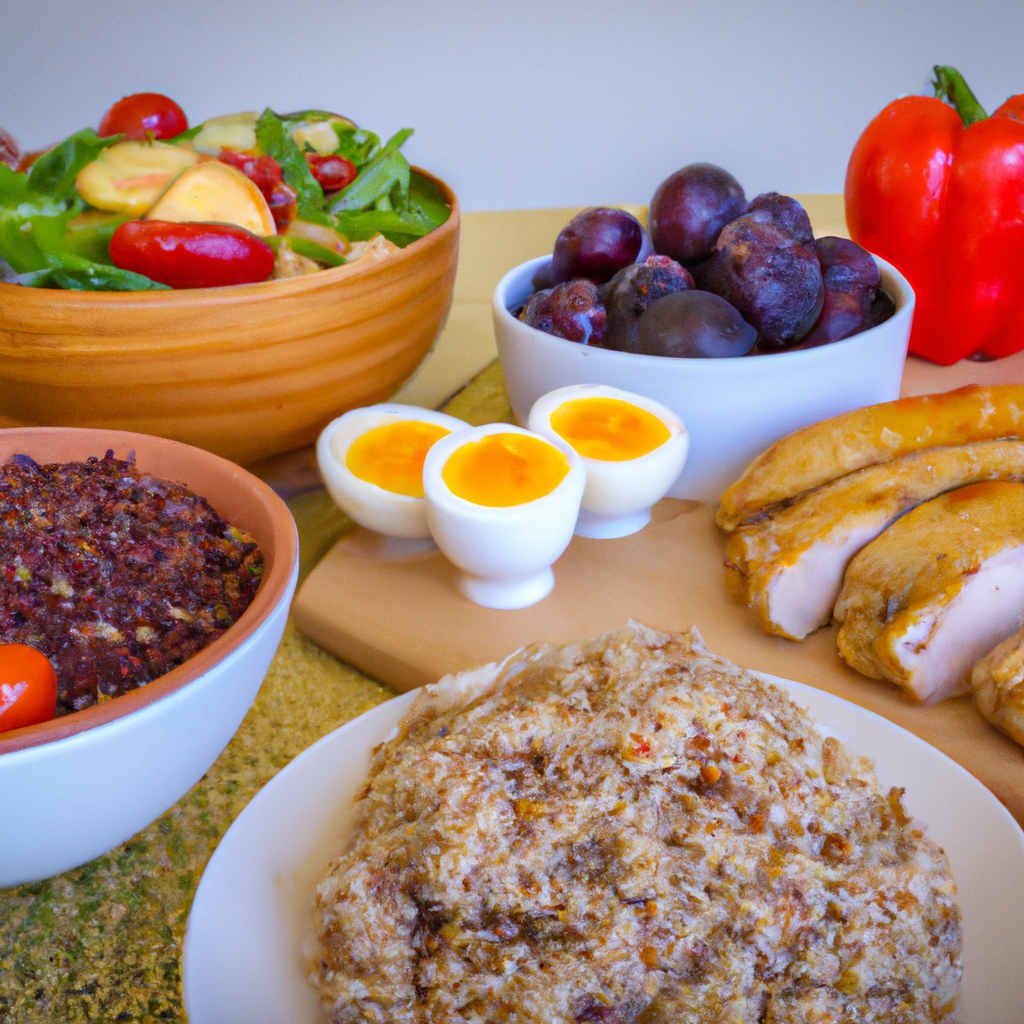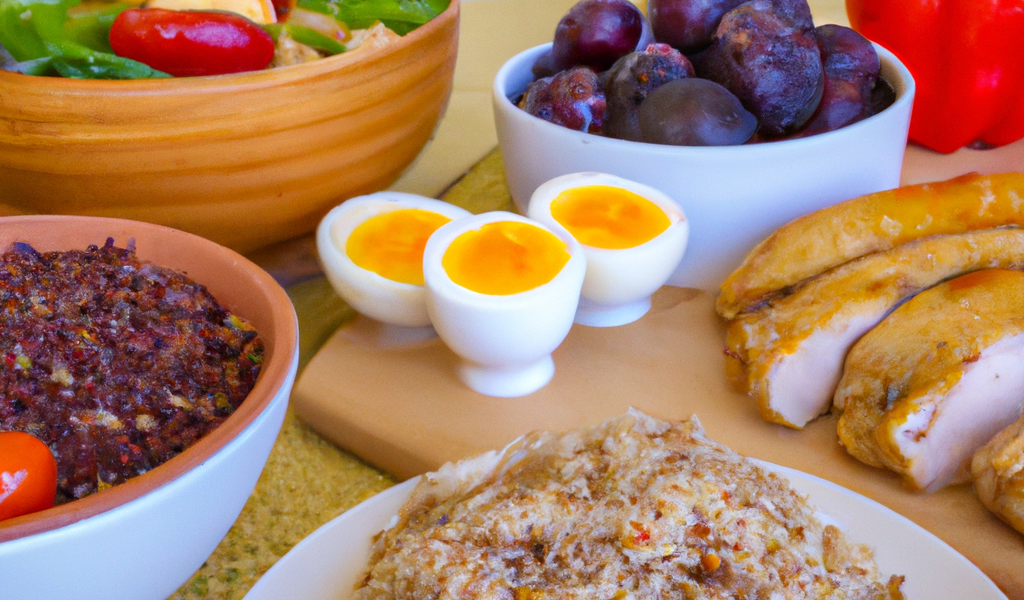Gluten-Free Diet: A Weight Loss Friendly Option?
In today’s health conscious world, the buzz around dietary restrictions is loud and clear, and right at the epicenter lies the ever-popular gluten-free lifestyle. When it comes to weight loss, there seems to be a whirl of information swirling around the potential benefits of this diet. With this article, you’ll navigate through the pros and cons of adopting a gluten-free diet as a weapon in your weight loss arsenal. Whether you’re a seasoned dieter or a novice in the realm of healthy eating, get ready to uncover valuable insights that could tilt your weight loss journey in your favor.

Understanding Gluten and Gluten-Free Diet
Defining Gluten
Gluten is a family of proteins that is present in certain grains including wheat, barley, and rye. It acts as a glue that maintains the shape of the food and gives it a chewy texture. It is often found in breads, pastas, cereals, and many processed foods.
What is a Gluten-free Diet?
A gluten-free diet is a dietary regimen that excludes foods containing gluten. This includes removing specific grains from your diet, as well as foods that may have been cross-contaminated with gluten during processing or cooking. However, switching to a gluten-free diet doesn’t mean you’ll be food-deprived. There are many gluten-free alternatives available, and lots of foods are naturally gluten-free.
Who Needs a Gluten-Free Diet?
Mainly, individuals with celiac disease need to follow a strict gluten-free diet. This is an autoimmune disorder wherein the consumption of gluten leads to damage in the small intestine. Others who may benefit from this diet are people with non-celiac gluten sensitivity, wheat allergy, and some other autoimmune disorders.
Key Elements of a Gluten-Free Diet
Foods to Include
Naturally gluten-free foods include fruits, vegetables, meat, poultry, fish, beans, legumes, dairy products, and grains like quinoa, rice, and corn. Quality fats like avocados, olives, and coconut oil are also gluten-free.
Foods to Avoid
To follow a gluten-free diet, you must avoid wheat, barley, and rye. This includes avoiding foods like bread, pasta, cereals, beer, cakes, cookies and certain sauces and condiments that might include these grains or their by-products.
Making Use of the Gluten-Free Label
Luckily, due to increasing awareness and demand, many food manufacturers now produce gluten-free versions of common foods. Look for the “gluten-free” label on packaged foods, as this indicates the food meets the necessary standards to be considered gluten-free.
Gluten-Free Diet and Weight Loss
Why Do People Think Gluten-Free Means Weight Loss?
The perception that a gluten-free diet equates to weight loss probably stems from the initial associated weight loss that can occur when someone with undiagnosed celiac disease adopts a gluten-free diet. Additionally, adopting a gluten-free diet often means cutting many processed foods, which could inadvertently lead to a reduction in calorie consumption.
How Gluten-Free Diet can lead to Weight Loss
If you consume a balanced gluten-free diet that focuses on fresh fruits, vegetables, lean proteins, and other whole foods, you are likely to consume fewer calories and hence, can experience weight loss.
Does Going Gluten-Free Guarantee Weight Loss?
Simply eliminating gluten from your diet doesn’t guarantee weight loss. Some gluten-free products can actually be higher in calories, sugar and fat than their gluten-containing counterparts. It’s the overall quality and composition of your diet, not just its gluten content, that determines whether you’ll lose weight.

Potential Benefits of Gluten-Free Diet
Improved Digestive Health
For those with gluten-related disorders, a gluten-free diet can significantly improve digestive health by reducing symptoms such as bloating, diarrhea, and stomach pain.
Increased Energy Levels
Some people report feeling more energetic on a gluten-free diet. This could be because the diet reduces inflammation and allows better absorption of nutrients.
Reduced Risk of Heart Disease
A healthy gluten-free diet rich in fruits, vegetables, lean proteins, and whole grains can help lower cholesterol levels, regulate blood sugar, and reduce your risk of heart disease.
Promotion of Weight Loss
As mentioned previously, a well-balanced gluten-free diet can lead to weight loss. However, it’s important to note that weight loss is not exclusive to gluten-free diets but is a result of calorie deficit and consuming a nutrient-rich diet.
Potential Risks and Drawbacks of Gluten-Free Diet
Nutrient Deficiencies
Whole grains can be a good source of various vitamins and minerals. Removing these from your diet can put you at risk for nutrient deficiencies.
Higher Risk of Weight Gain
Gluten-free does not necessarily mean healthy. Many processed gluten-free products are high in sugars and unhealthy fats, leading to increased calorie intake.
Risk of Consuming Unhealthy Substitutes
In an attempt to recreate familiar foods without gluten, you might end up using substitutes that are lower in fiber and higher in sugar or fat.
Increased Grocery Bill
Gluten-free products are often more expensive than their gluten-containing counterparts.
Research on Gluten-Free Diet and Weight Loss
Current Findings
The research on gluten-free diets and weight loss is mixed. Some studies suggest that individuals following a gluten-free diet can lose weight, while others find no difference.
Limitations and Critiques of Existing Study
Many previous studies have shortcomings. They’re often short-term, small, and not properly controlled, which makes it difficult to draw firm conclusions.
Future Research Directions
Further research is needed to fully understand the impact of a gluten-free diet on weight loss in populations without gluten-related disorders. Multiple factors play a role in weight loss, and how the exclusion of gluten fits into the picture is still unclear.
Guide to Starting a Gluten-Free Diet for Weight Loss
Consult a Healthcare or Nutrition Professional
Starting a new diet, particularly a restrictive one like a gluten-free diet, should always be done under the guidance of a healthcare or nutrition professional.
Read Food Labels Carefully
It’s a must to become a label-reader since gluten can hide in unsuspected places in food labels.
Focus on Naturally Gluten-Free Foods
Opt for foods that are naturally gluten-free rather than processed gluten-free products.
Use Gluten-Free Alternatives Sparingly
Use manufactured gluten-free alternatives sparingly, as they often contain additional fat and sugar.
Practical Tips for Implementing Gluten-Free Diet
Meal Planning and Prep
Planning meals in advance can help ensure you’re eating a balanced and nutritious gluten-free diet.
Finding Gluten-Free Menu Options When Eating Out
Do some research before dining out. Many restaurants offer gluten-free menu options.
Avoiding Cross-Contamination at Home
Even a small amount of gluten can be problematic for people with celiac disease, so preventing cross-contamination in shared cooking environments is crucial.
Sample Gluten-Free Weight Loss Meal Plan
Breakfast Options
Consider a protein-packed smoothie or omelet with veggies.
Lunch and Dinner Ideas
Try salad topped with lean protein or grilled chicken with quinoa and veggies.
Snack Choices
Raw fruits and vegetables, gluten-free rice cakes, or a handful of nuts are good options.
Beverages
Water, herbal tea, and fresh-squeezed juices are the best choices.
Final Thoughts on Gluten-Free Diet and Weight Loss
Weight Loss Involves More Than Just Going Gluten-Free
Remember, going gluten-free does not guarantee weight loss. A balanced diet and regular physical activity are crucial for sustainable weight loss.
Importance of Personalized Nutrition
We all have unique dietary needs. Going gluten-free may be beneficial for some, but it’s not a one-size-fits-all solution.
Not a One Size Fits All Solution
Some people may benefit from a gluten-free diet, while others may see no weight loss benefits or even negative effects. Always consult a healthcare professional before making significant changes to your diet.

